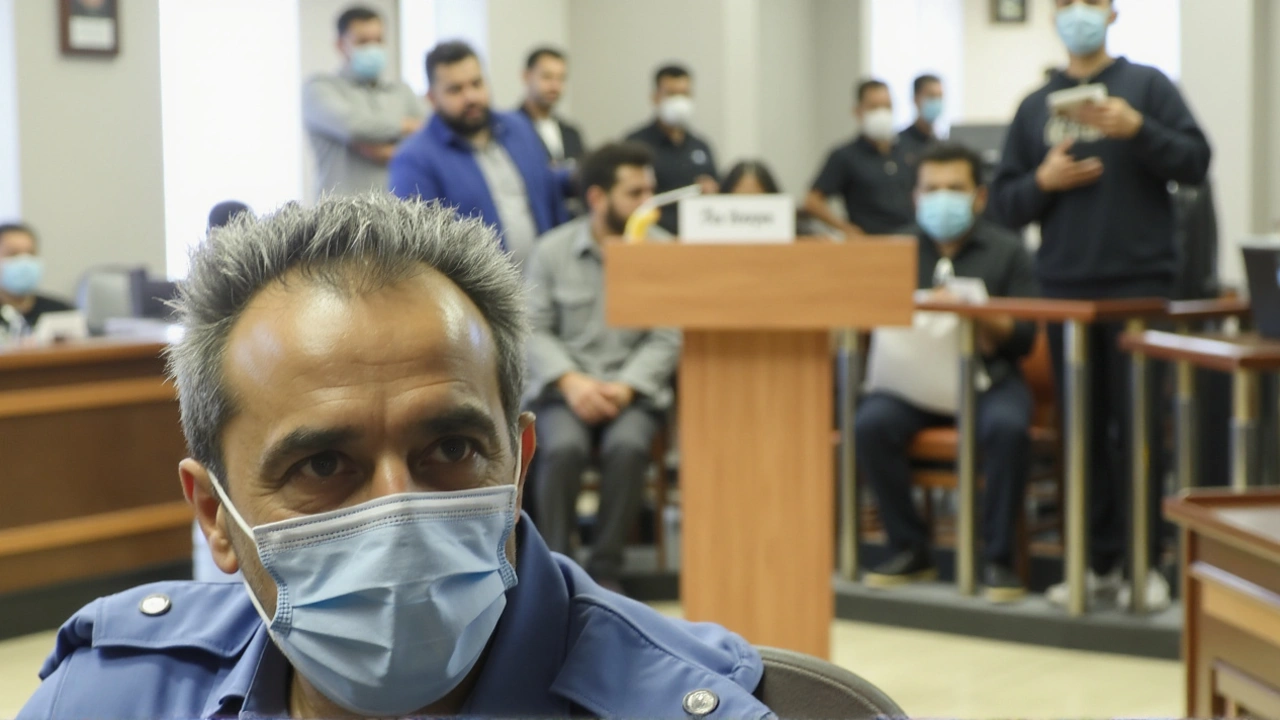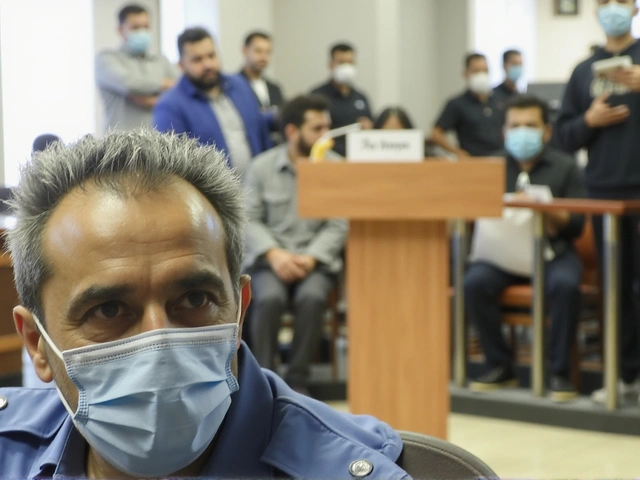Turmoil Over Iran's Execution of Jamshid Sharmahd
In a contentious act that has drawn widespread international condemnation, Iran has executed Jamshid Sharmahd, an Iranian-born citizen who also held German nationality and US residency. The 69-year-old had been a prisoner in Iran since his abduction in 2020. His execution, announced by Iran’s national judiciary, stems from allegations of his involvement in plotting terror attacks, particularly an incident in 2008 that targeted a mosque, resulting in 14 deaths and over 200 injuries. This execution comes after a trial process criticized by many international observers as lacking transparency and due process.
International Backlash
The response from Germany has been particularly forceful, with German Foreign Minister Annalena Baerbock denouncing the execution as an "inhumane act," highlighting the dangers facing individuals under the current Iranian regime. German Chancellor Olaf Scholz also expressed outrage, characterizing the judicial proceedings as a "scandal." Their comments reflect a deep concern over Iran’s treatment of foreign nationals and the integrity of its judicial system, perceived by many as being used to suppress dissent and settle political scores.
The United States also voiced strong objections, condemning Iran for Sharmahd's imprisonment and eventual execution. Abram Paley, representing the US Office of the Special Envoy for Iran, emphasized that Sharmahd should never have been detained. The US described his detention as a result of kidnapping and rendition, followed by a "sham trial." Such denouncements underline ongoing tensions between Iran and Western nations over human rights issues.
Iran's Justification Amidst Accusations
In response to the global rebuke, Iran's Foreign Minister Abbas Araghchi dismissed the criticism as "gaslighting," asserting that holding a German passport does not offer immunity from engaging in terrorism. Iran defends its actions by pointing to allegations against Sharmahd and insists that its judicial processes are sovereign and legitimate in addressing crimes it perceives as threats to national security.
Diplomatic Repercussions
This execution has triggered significant diplomatic measures, notably from Germany, which ordered the closure of Iran's consulates in key cities including Frankfurt, Hamburg, and Munich. This decisive action, articulated by Foreign Minister Baerbock, signals Germany’s strategic and diplomatic retaliation, leaving only the Iranian embassy operational within its borders. Such closures aim to convey Germany’s serious disapproval and deal a significant blow to Iran's diplomatic presence in Europe.
Family's Plea and Concerns
Gazelle Sharmahd, daughter of the late Jamshid Sharmahd, has not only mourned her father’s loss but also criticized both Germany and the US for their inability to secure his release and prevent the execution. Her demands include a call for significant and immediate consequences against Iran, alongside a request for the return of her father’s body. She aspires that his remains be honored according to Zoroastrian religious customs—an appeal that underscores the complex intersection of personal and political stakes in international human rights crises.
Broader Implications and Human Rights Concerns
The execution of Jamshid Sharmahd is not an isolated incident but rather reflective of broader patterns of human rights challenges within Iran, where, according to the Norway-based NGO Iran Human Rights, at least 627 executions have taken place this year alone. The detention of numerous Europeans further exacerbates tensions, fostering a climate of uncertainty and disquiet among international communities. The situation calls attention to the precarious status of dual citizens and foreign nationals in Iran, and their vulnerability in contexts that lack legal and diplomatic protections.
As the diplomatic and humanitarian implications of Sharmahd's execution unfold, the call for robust international advocacy and accountability continues. The unfolding narrative highlights the crucial need for international solidarity in addressing human rights abuses and ensuring justice and protection for individuals facing similar plights.



Leave a Comments